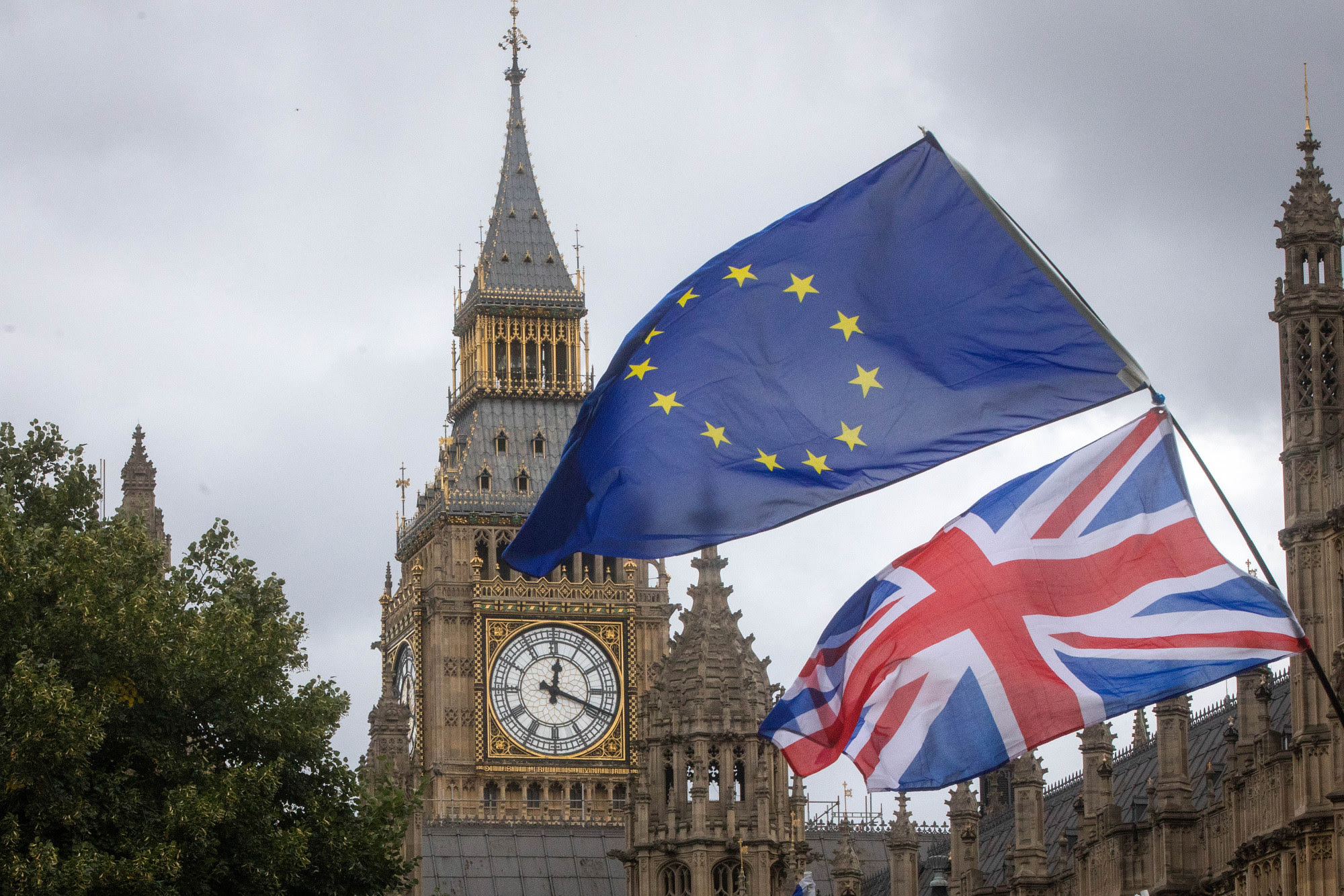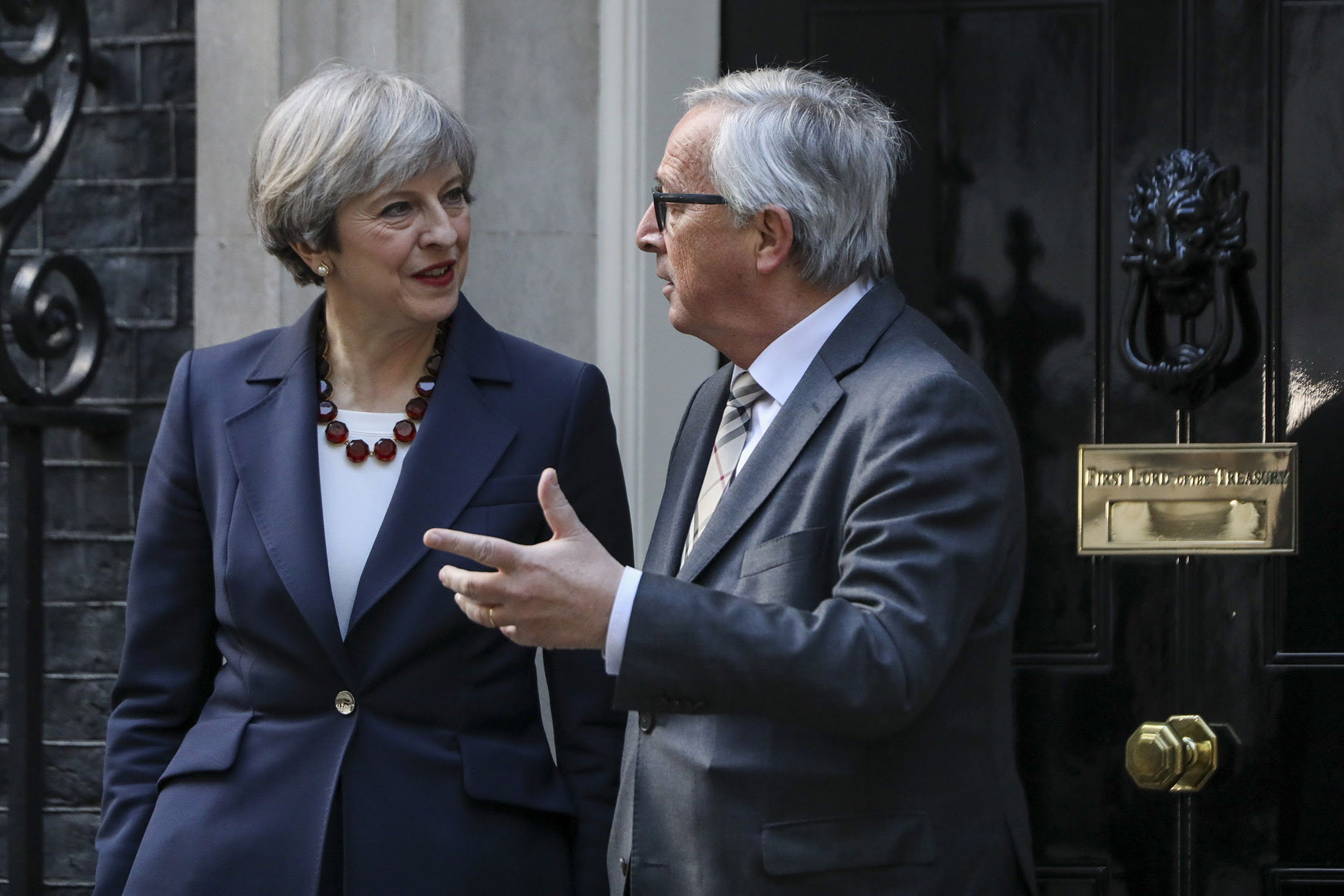There may be trouble ahead
In a vote after midnight, lawmakers voted 326 to 290 to let the prime minister’s Brexit law advance. The government won after promising to discuss critics’ concerns before they have to vote again, and to consider allowing more time for the next stage of debates.
The Brexit bill will formally end Britain’s EU membership and overturn the supremacy of European law in the country. It is controversial because it hands sweeping powers to ministers to change legislation as they see fit, without full scrutiny in Parliament.
“Parliament took a historic decision to back the will of the British people,” May said. The bill will give “certainty and clarity” ahead of Brexit and lawmakers “from all parts of the U.K.” should “work together in support of this vital piece of legislation.”
Helpfully for May, some Labour Party politicians indicated they would disobey their leader Jeremy Corbyn’s orders to vote against the bill. But a succession of her own lawmakers warned the government it needs to dilute the part of the bill that hands it unchecked power.
The government also survived a vote on the timetable for debating the bill. It will be limited to eight days. A defeat there would have flagged early signs of trouble for May.
“Shangri-La” for Banks
Corbyn will on Tuesday warn of a “Shangri-La for bosses and bankers” if May is allowed to continue with her plans for Brexit.
Speaking at the Trades Union Congress in Brighton, Corbyn will pledge to fight for a “jobs first” split. He will speak after an interview on Monday injected more confusion over Labour’s position on quitting the bloc.
May’s policies for Brexit will “deliver a deregulated free market tax haven on the shores of Europe, underpinned with a race-to-the-bottom trade deal with Donald Trump,” Corbyn will say.
He hinted on Monday that he might be open to trying to keep Britain inside the EU’s single market after Brexit, in an apparent shift in Labour’s ever-evolving position.

Brexit Latest
Premier League | England’s soccer clubs already face higher costs for star players because of the pound’s plunge since the Brexit vote, but the bigger financial threat to the Premier League from Brexit lies in tighter immigration rules. The league is lobbying the government to allow an open system, where any club could sign 17 players of its choosing for its first team squad, which could have 25 players overall and thus would have at least eight homegrown players.
Security | Britain will continue to offer troops to EU operations after Brexit, as well as agreeing to joint foreign policy positions with the bloc, as part of the close relationship that May’s government is pitching for.
Still No. 1 | London retained its crown as the world’s top financial center in a ranking by Z/Yen that surveys industry professionals, extending its lead over New York and Hong Kong despite ongoing uncertainty about the implications of Brexit.
The Economy | U.K. hiring intentions “continue to be favorable in the face of uncertainty around Brexit negotiations,” Manpower reported. Inflation data is released Tuesday morning.
Trump Request | May asked U.S. President Donald Trump to intervene in a court dispute between Boeing and Canada’s Bombardier over state aid, her office said. The request, made in a call with the president on Sept. 5, came as her government seeks to protect jobs at a Bombardier plant in Belfast, Northern Ireland.
An Ex Speaks | Nick Timothy, May’s former co-chief of staff, said May should consider giving EU citizens who want to work in Britain preferential treatment. Despite “sneering critics,” Britain is in a good position to agree a new relationship with the EU, he wrote in The Sun.
Barclays | The bank, which has been in talks with Irish regulators to expand operations in Dublin following Brexit, could move some staff to its Frankfurt office if euro clearing moves into the euro area, according to the bank’s head for Germany.
Royal Bank of Scotland | The bank’s chairman, Howard Davies, said the U.K. is “at the worst possible time” in the Brexit talks and is going to have to “change gear” on how much money it’s going to pay. Meanwhile, Chief Financial Officer Ewen Stevenson said the impact of Britain’s exit will have a “long slow burn on the U.K. economy” for many years to come.
JPMorgan | Chief Executive Officer Jamie Dimon told Irish Prime Minister Leo Varadkar he was already committed to new investment and jobs in Dublin, and further increases are likely.
Moving Out | Chubb says it will relocate its headquarters to France if the U.K. leaves the EU as expected in March, 2019.


Comentarios
Publicar un comentario